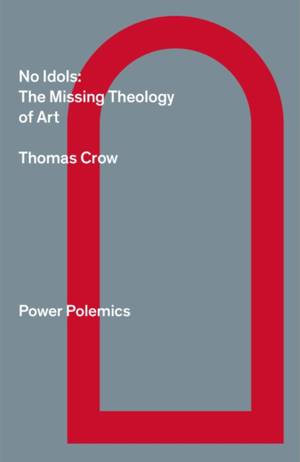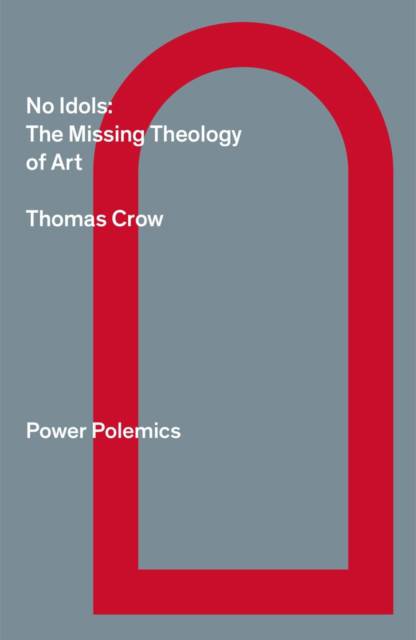
- Retrait gratuit dans votre magasin Club
- 7.000.000 titres dans notre catalogue
- Payer en toute sécurité
- Toujours un magasin près de chez vous
- Retrait gratuit dans votre magasin Club
- 7.000.0000 titres dans notre catalogue
- Payer en toute sécurité
- Toujours un magasin près de chez vous
Description
The first in the new Power Polemics series, Thomas Crow's No Idols: The Missing Theology of Art turns away from contemporary cultural theories to face a pervading blindspot in today's art-historical inquiry: religion. Crow pursues a perhaps unpopular notion of Christianity's continued presence in modern abstract art and in the process makes a case for art's own terrain of theology: one that eschews idolatry by means of abstraction. Tracking the original anti-idolatry controversy of the Jansenists, anchored in a humble still life by Chardin, No Idols sets the scene for the development of an art of reflection rather than representation, and divinity without doctrine. Crow's reinstatement of the metaphysical is made through the work of New Zealand artist Colin McCahon and American artists Mark Rothko, Robert Smithson, James Turrell, and Sister Mary Corita Kent. While a tightly selected group of artists, in their collective statute the author explores the proposal that spiritual art, as opposed to "a simulacrum of one," is conceivable for our own time.
Spécifications
Parties prenantes
- Auteur(s) :
- Editeur:
Contenu
- Nombre de pages :
- 200
- Langue:
- Anglais
Caractéristiques
- EAN:
- 9780909952990
- Date de parution :
- 01-04-17
- Format:
- Livre broché
- Format numérique:
- Trade paperback (VS)
- Dimensions :
- 127 mm x 203 mm
- Poids :
- 226 g

Les avis
Nous publions uniquement les avis qui respectent les conditions requises. Consultez nos conditions pour les avis.






